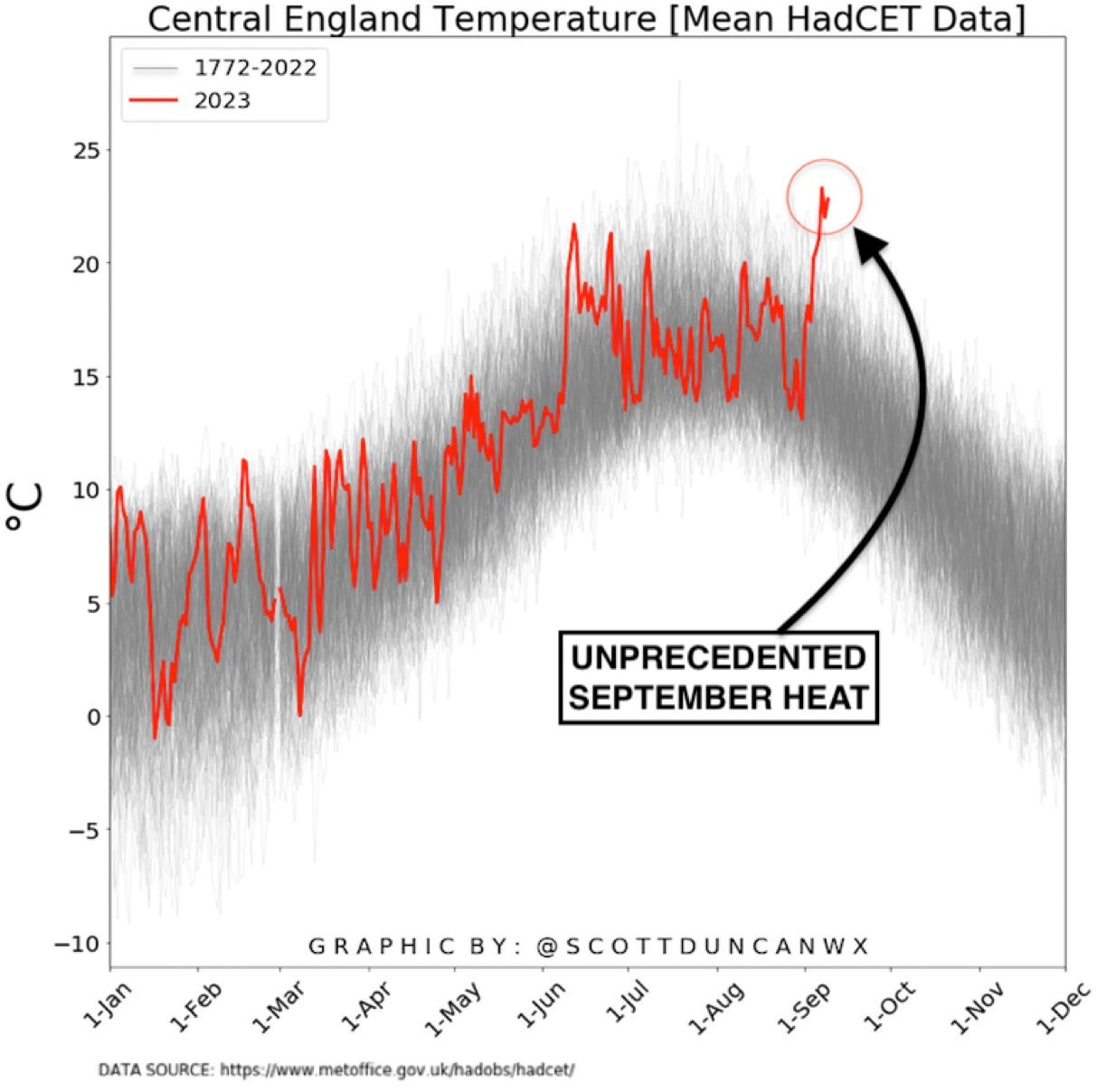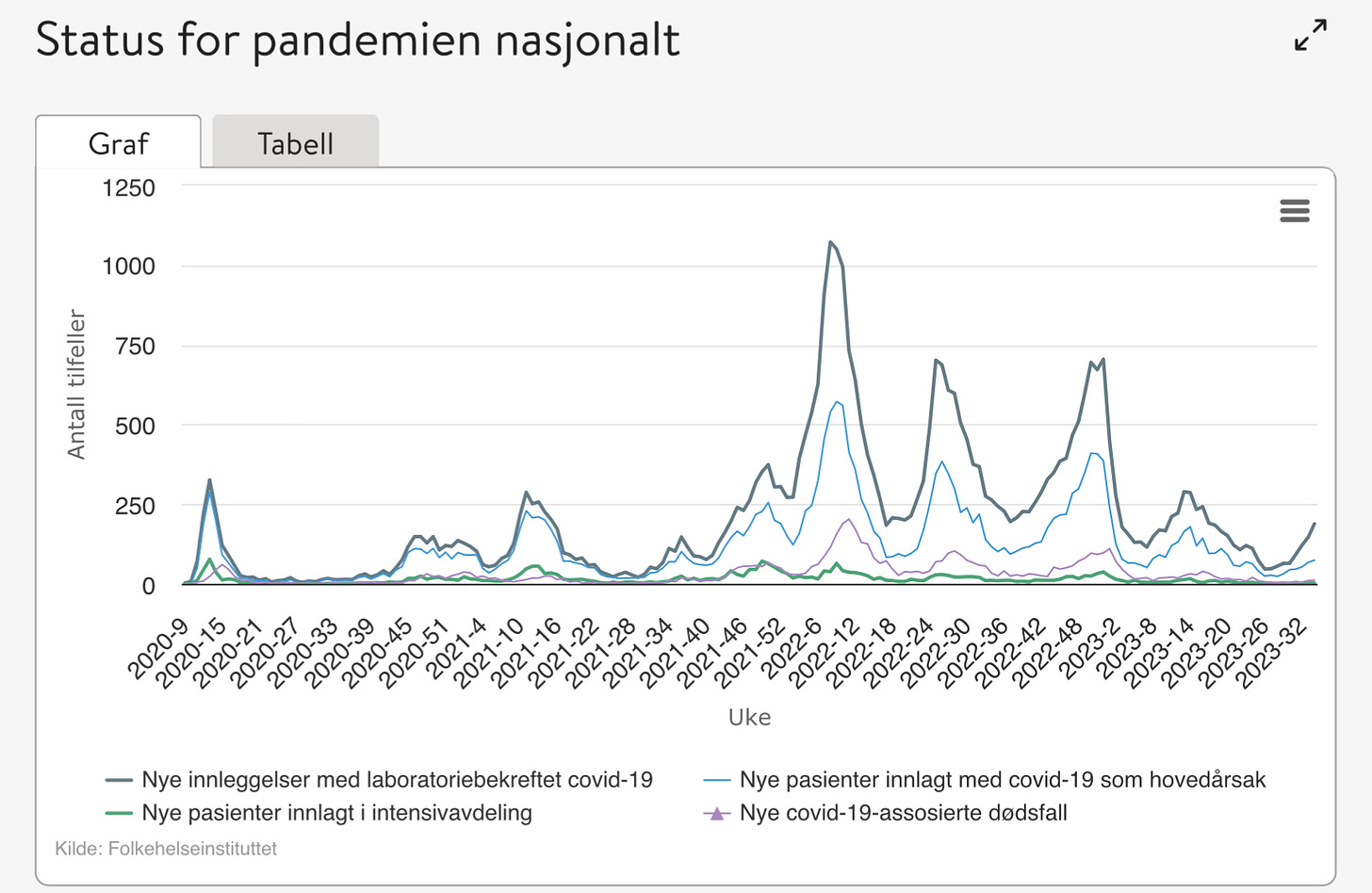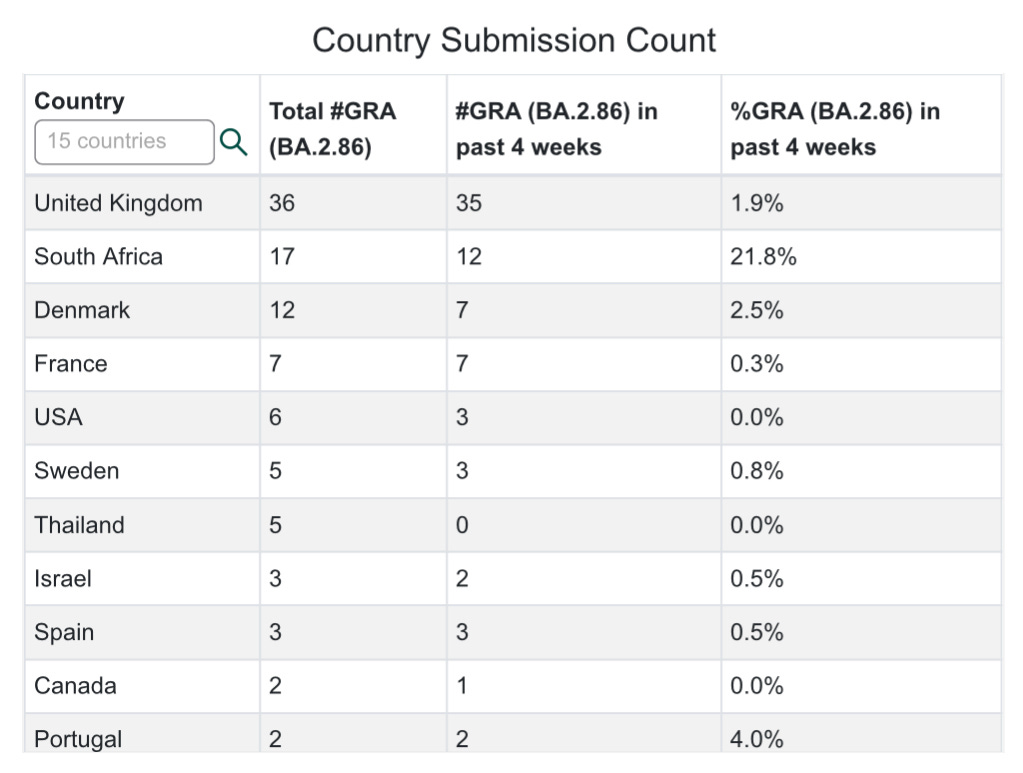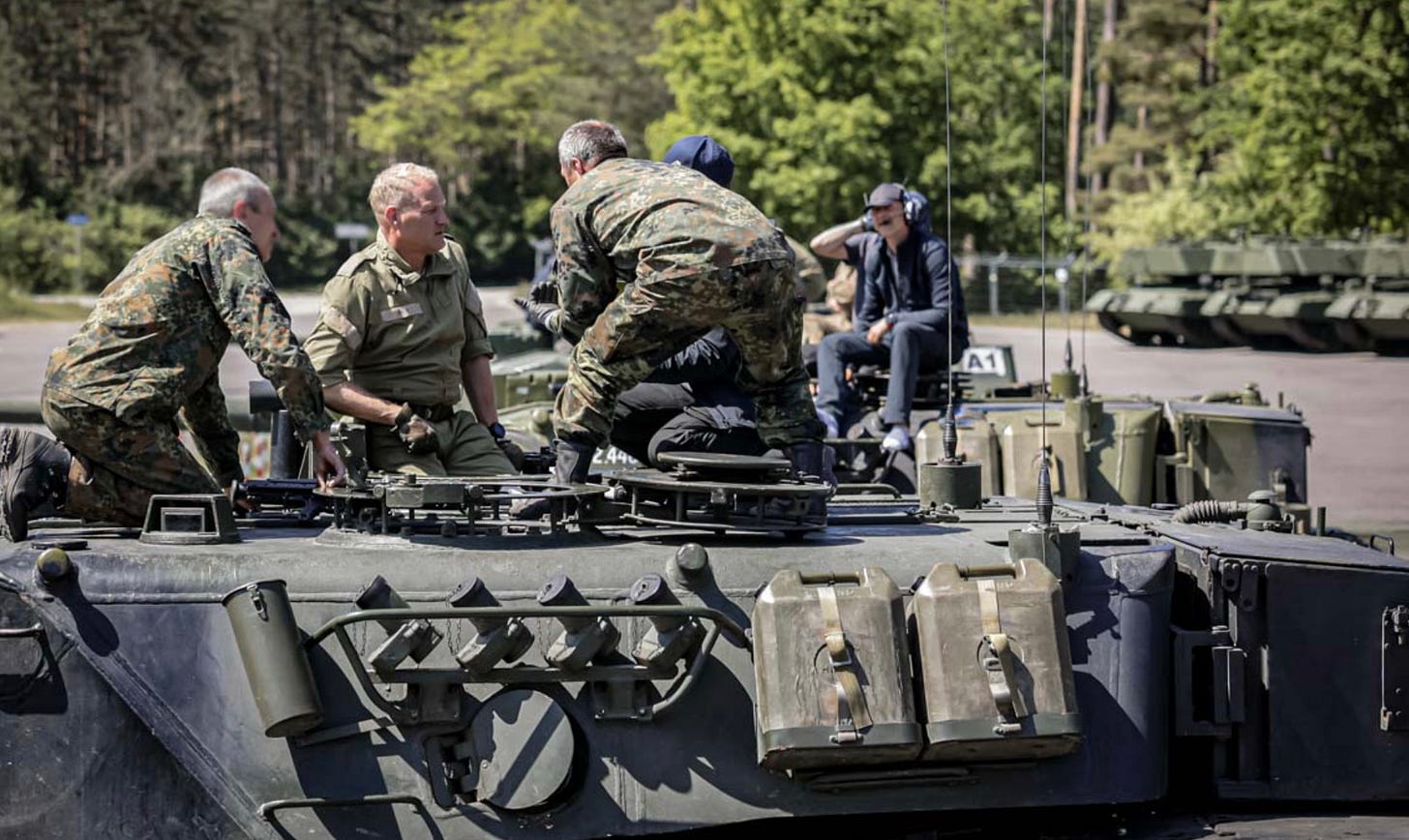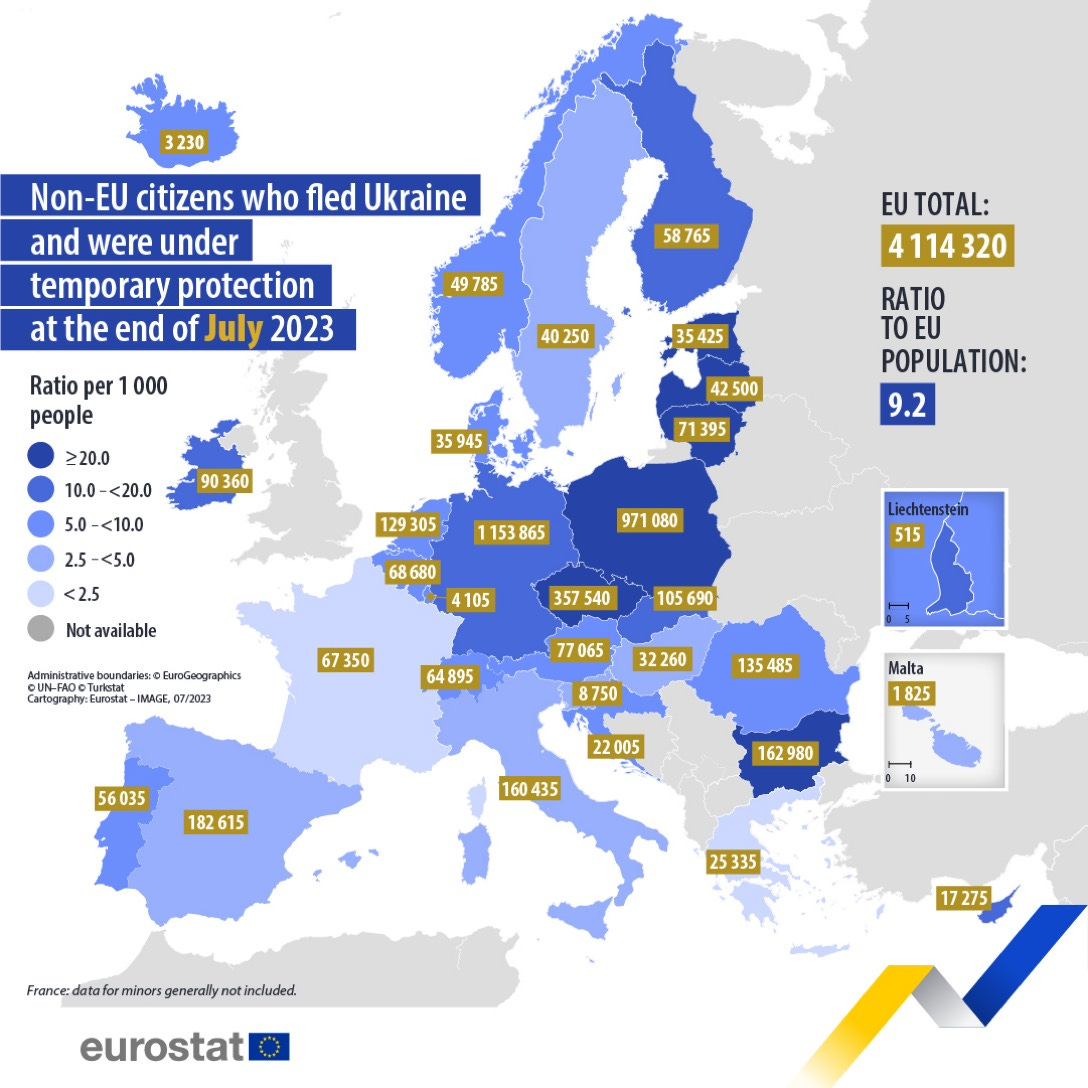🇬🇧 🇩🇰
More woes for the offshore wind industry. Danish wind energy giant Vestas is pausing its plans to build a production factory in Great Britain. In an energy auction held last week, the British government got zero bids for offshore wind energy contracts. This is despite significant activity for tidal, solar panel, and geothermal schemes.
Vestas says until the British government takes steps to address challenges facing the offshore wind sector they are going to reign in UK operations. CEO Henrik Andersen even went as far as to say that the UK has forfeited its spot as a green energy leader and is now “an average country.”
The CEO of Green Power Denmark has pointed at the British auction flop as a clear warning sign for the Danish government. Speaking to Ritzau, Kristian Jensen says politicians need to reevaluate their revenue expectations when it comes to offshore wind farms.
“This shows that if you tighten the requirements too much in tenders or set revenue expectations too high, you risk being badly disappointed.”
He says the Danish government, which is relying heavily on offshore wind energy for its green transition, risks the same disaster facing the British government if it doesn’t ensure more attractive business conditions for offshore developers.
A few weeks ago Danish energy giant Ørsted wrote down billions in Danish kroner in offshore wind energy projects in the United States due to rising costs. Its stock was immediately pummeled on the markets wiping out over $11 billion Canadian in market value.
🇩🇰
Electric vehicles are taking over in Denmark as EV sales eclipse that of new and used gas and diesel cars. But it doesn’t stop there. The number of fully electric trucks being sold is also beginning to explode. The proportion of newly registered electric trucks in Denmark has quadrupled in the last year according to De Danske Bilimportører, which tracks vehicle statistics. In 2022, 1.8% of all newly registered trucks were electric. So far this year that number has jumped to 6.3%.
The industry organization says while it is early days for electric trucks those numbers will continue to rocket upward. It says that it expects the electric truck market to eclipse that of electric cars.
-
Where is the beef? At a number of universities and colleges in Denmark, you won’t find it in their cafeterias anymore. Citing environmental concerns education institutions are booting beef right off the menu. According to a report from Concito, Denmark’s green think tank, beef accounts for 55% of food production based greenhouse gas emissions.
Among the institutions saying bye-bye to beef are the Copenhagen University of Applied Sciences, the University of Southern Denmark, the Technical University of Denmark, Roskilde Festival College, SOSU Esbjerg, and Randers Social and Health School.
🇩🇰 🇸🇪
Sweden is vastly outpacing Denmark when it comes to funding the move to electric trucks. The Council for Green Transition says the Swedish government has earmarked approximately 6 billion Swedish kroner (about 4 billion Danish kroner or about $760 million Cdn) to transition trucks from fossil fuels to electricity. At the same time, the Danish government has set aside 100 million kroner.
The Council’s Climate and Transport Advisor Daria Rivin says the Danish government needs to be smart to help level the playing field.
“When the government does not immediately set aside more money for the Danish conversion of trucks, it is important that it uses what it is investing wisely. Therefore, there is a need to focus on the electrification of trucks and that all the funds be set aside for use in 2024 as a single pool. Furthermore, it should be supplemented with increased subsidies for 2025 and 2026, as well as separate funds for depot loading and for trucks that reduce noise and air pollution in the larger cities or the trucks that do not drive that far.”
The council would like to see the Danish government step up with subsidies to help people purchase new electric trucks until at least 2026. It says this should be accompanied by an expansion of charging infrastructure around the country.
🇸🇪
Nordic postal service PostNord says it very likely won’t reach its climate goals thanks to an inadequate Swedish electricity grid. The postal company had set itself the goal of becoming carbon-neutral by 2030. To realize that goal over 70% of its huge fleet would need to be electric vehicles. At the moment about a third of its fleet is electric.
In a written statement to the Swedish government, PostNord says that bottlenecks in grid capacity are preventing it from transitioning the rest of its fleet.
Postnord's CEO Annemarie Gardshol delivered a terse answer when asked by Radio Sweden if the company can meet its climate goals.
“The short answer is no.”
And it isn’t just PostNord she says, the electricity grid in Sweden is so lacking that it can’t even keep up with the every increasing demands of electrification. This is also crimping efforts for the entire transportation sector to meet emission reduction goals.
“I can’t see how that plan can be realized. I think many people are questioning if the transportation sector can actually achieve this.”
🇪🇺 🔥
It has been a devastating year for wildfires in Europe. The EU Commission says so far this year wildfires have burned through 468,289 hectares of land. While that is significantly below the 748,426 hectares burned last year, this year’s fire season has seen some of the largest and most destructive wildfires ever recorded in Europe. Not only that, the EU Commission says other worrying trends have emerged. 41% of the area claimed by the flames this summer was within lands protected as biodiversity reservoirs.
The flames are also compounding the climate change crisis. Wildfires this year are responsible for creating 20 million tonnes of CO2 emissions. This will further intensify the impacts of climate change.
Mediterranean countries have been particularly hit hard this wildfire season with flames sweeping through areas of Spain, Greece, Italy, and Portugal.
So far this year, Europe has recorded 1,273 wildfires that were 30 hectares or larger in size.
🇬🇧
Scottish meteorologist Scott Duncan says parts of Europe are seeing an “unprecedented” September heat wave. Duncan says that Sunday was the seventh day in a row where temperatures in the United Kingdom hit 30 degrees. He says temperatures like these have never been seen before in the UK at this time of year.
🦠COVID🦠
🇩🇰
Doctors in Denmark are warning that vaccination rates could decline especially among some of the most vulnerable citizens because family doctors have been left out of this fall’s influenza and COVID booster dose campaign. Family doctors helped administer both booster doses and the annual flu shot during the last couple of fall and winter vaccine action efforts.
Chair of Region Midtjylland General Practitioners Association Henrik Idriss Kise says having doctors being left on the sidelines is extremely concerning.
“When you both talk about bringing vaccination efforts close to people and at the same time want to maintain a high vaccination rate, I find it difficult to see the rationale for this decision. When it becomes so centralized the vaccination rate will drop quite considerably. The extra barriers will contribute to keeping people from being vaccinated. Chances are it will be those who are most vulnerable that we will fall between the cracks because of this.”
In response, the Danish Regions say there are more than enough places for people to get vaccinated and the system is designed to best manage the distribution of a limited number of vaccine doses.
Beginning on October 1, a new round of COVID vaccine booster doses and influenza vaccinations will be administered. Vaccinations will be available for seniors over 65 and high-risk populations.
Inoculations will be available at vaccination centers and select pharmacies in each of Denmark’s five regions.
Last week, Doctors on the Danish island of Bornholm raised similar concerns.
-
After shortages of critical medical supplies like masks and protective gear during the pandemic and then scrambling to react to the energy crisis, Denmark’s Agency of Security of Supply has tabled a strategy to deal with future emergencies. Saying that Denmark must be better prepared the agency says that work must be done to ensure sufficient food, medicine, and drinking water in any future emergency as well as making sure that critical equipment and supplies are there when they are needed. The strategy covers the healthcare system and 14 other critical sectors like energy, transportation, defense, and others.
However, critics say while a strategy like this is desperately needed in this case it amounts to a series of glorified suggestions with no actual teeth to ensure any compliance.
Speaking to DR, Rasmus Dahlberg, Head of the Center for Community Security says what amounts to good advice lacks anything to compel any change to ensure Denmark is ready for any future crisis.
“You can debate whether this is a strategy, or whether it is in fact more of a catalog of free advice offered from a well-intentioned and sensible agency that does not really have a mandate. In the end, someone has to take responsibility for saying: "How safe do we want to be?" Even if you do a good job with a fine strategy from an agency, it's no use if you don't have a mandate to push it through.”
In Denmark each authority and agency is responsible for preparedness in its own realm of responsibility and none of them are obligated to respond to, or comply with, this new strategy.
Dahlberg says instead of a series of overlapping agencies with competing interests, in a crisis, there needs to be one hand on the wheel. In this case, he suggests that one overarching authority should have the responsibility of coordinating a crisis response.
In the aftermath of the height of the COVID pandemic, more than 20,000 pallets of emergency supplies had to be destroyed after passing their best before dates while gathering dust in warehouses around the country.
🇳🇴
The Norwegian Institute of Public Health says while the overall coronavirus epidemic is in a “stable low phase” the number of infections and COVID hospitalizations have both been increasing in recent weeks. The number of ICU admissions remains “low and stable.”
The institute says hospitals across the country are prepared for an increase in COVID and other respiratory infection-related admissions in the weeks and months ahead.
The institute is reminding Norwegians to stay home if they are sick and to wear a mask if they are indoors with anyone who is among a high-risk population.
🇪🇺🦠
The European Centre for Disease Prevention and Control says infection activity across Europe has continued to increase. It places the blame for the rise in COVID cases on people ignoring the infection risk attending large gatherings and increasing travel during the summer holidays. The agency says another factor at play is waning immunity with the last booster dose for many administered many months ago.
The ECDC also points to a new crop of variants that have appeared. Of those, it says XBB strains with a mutation called F456L are helping the virus dodge around immune protections. And then there is the BA.2.86 variant.
“Globally, low-level community transmission of this variant is suspected in multiple countries. In terms of mutations, the variant is highly divergent from currently circulating SARS-CoV-2 variants bringing the possibility of increased reinfections if it successfully outcompetes currently circulating variants in the EU/EEA.”
As has been the case for a while now, the agency warns that seniors and other high-risk populations remain the most susceptible to severe infections resulting in hospitalization or perhaps death. With that is mind the ECD C is urging European countries to launch robust booster dose campaigns.
“As we approach autumn vaccination campaigns, countries should carefully consider factors that have previously limited booster vaccine uptake and address them. So that vaccination campaigns adequately protect population groups that remain at risk of severe COVID-19 disease, countries should assess their readiness to detect and respond to epidemiological signals of increased COVID-19 transmission. They should also assess their ability to identify and reach high-risk groups. Communication campaigns that engage healthcare professionals and the wider public play a critical role in highlighting the importance of staying up to date with COVID vaccination for high-risk groups.”
🇬🇧
The United Kingdom Health Security Agency has been keeping a close eye on variant developments and has released its latest batch of information on the BA.2.86 strain. The agency continues to theorize that the new variant possibly spread at some unknown event and then was spread globally by travel. However, it adds that with established infection chains across a number of countries around the world the “seeding event” is no longer what is driving infection spread. It also stresses that while the variant continues to spread globally trying to figure out the extent of the variant’s true infection spread is impossible due to lagging testing and genome sequencing.
Within the UK the HSA says that with cases popping up all over the country with no link between them or any travel connections, BA.2.86 has certainly taken root and is spreading. It adds though that there isn’t enough information to say whether this strain is spreading at a faster or slower rate than other competing variants. It can say with certainty based on the information at hand only two variants, XBB.1.16.6 and XBB.2.3.11, that are seeing infection growth rates exceed all other strains where enough information is at hand to have something of a better picture.
One outbreak at a seniors care home in the United Kingdom is responsible for 28 of the BA.2.86 infections confirmed so far. The agency says the variant spread extremely fast within the care home, which may speak to its ability to spread in an enclosed setting but not necessarily its overall infection rate. Epidemiologists also note the strain confirmed in the care home outbreak had two mutations not seen in any other BA.2.86 infection anywhere else in the country. Of the infected residents, only three were unvaccinated and only one was hospitalized.
Last but not least, the UKHSA says while COVID cases are rising across the nation there isn’t enough information to say that BA.2.86 is the variant that is pushing numbers upward.
🌍🦠
According to the international genome database, GISAID, the BA.2.86 variant has now been confirmed to be active across 15 countries.
🇺🇦/ 🇷🇺 War
🇹🇷 🇸🇪
Surprise, surprise. Turkey’s President seems to be once again walking back a promise to support Sweden’s NATO application. In an address over the weekend, Recep Tayyip Erdoğan has again demanded Sweden must fulfill some of the promises it has made before he can send the country’s NATO application to the Turkish parliament.
Erdogan, as has been his style during this entire process, is seizing on the potential sale of F-16 fighter jets to Turkey as he again tries to use Sweden’s NATO application as a bargaining chip to wring out concession after concession.
“I had a brief meeting with Biden about our F-16 request. They repeatedly said that it is tied to Sweden’s Nato accession. They keep saying that. If you tie F-16s to Sweden and say you have a Congress to consider, I have my own Congress, which is the Turkish Parliament. I cannot alone ratify it. Sweden has to take some steps.”
The United States has been applying a lot of pressure on the Turkish government behind the scenes including the potential sale of F-16s to Turkey, which has long coveted the more modern fighter jet.
Erdogan also lashed out at the European Union as, in a display of geopolitical brinksmanship, he tied approving Sweden’s NATO bid to restarting the long-stalled process of admitting Turkey into the EU. Turkey was granted EU candidate status in 1999 but its membership has been in the freezer for years as Erdogan steers the country down a more and more authoritarian path. EU member nations have to meet a swath of strict criteria, which include abiding by democratic values and ensuring the rule of law. Turkey has done neither.
At the NATO summit in Vilnius this summer Erdogan agreed to support Sweden’s NATO application and send it to his parliament for approval when the Turkish legislature resumes sitting this fall.
🇩🇰 🇩🇪 🇳🇱 🇺🇦
The first ten refurbished Leopard 1A5 tanks have arrived in Ukraine and more will soon join them. Denmark, Germany, and the Netherlands have been working to refurbish up to 100 decommissioned Leopard tanks stored in Flensburg, Germany. The work has been underway since last spring.
The effort also includes the training of Ukrainian soldiers in how to use the tanks. Interestingly, six of the Leopard tanks used in the training program are on loan from Danish war museums as they were in much better operational shape than any of the decommissioned tanks sitting in Flensburg.
Head of the Danish Armed Forces Gunner Arpe Nielsen:
“It is a very important task. Denmark has sent some of our best tank instructors to Germany to train the Ukrainians in getting the most out of this weapon system. And I have no doubt that it will help them win the battle they are fighting right now.”
Chief of Staff at the Armored Battalion, Major Kim Fonseca says while the training program is condensed it does not sacrifice quality in getting the Ukrainian troops prepared.
“We are training the tank crews exactly like we would at home in Denmark. Regardless of whether we train Danes or Ukrainians, the quality must be equally high. It is clear that we do not have that much time, because it is important that they get back to Ukraine as fast as possible to help their comrades in the defense of Ukraine. But they are highly motivated and they are good at listening, so we can easily prepare them well for the battle that awaits them.”
Denmark decommissioned the older Leopard 1A5 tanks in 2005 after upgrading to the newer Leopard 2A4.
🇫🇮/ 🇷🇺
Russia has rapidly built at least three big new buildings at a military base close to the Finnish border according to satellite images obtained by Yle, Finland’s national broadcaster. The base is home to the Russian Arctic Motor Rifle Brigade, which specializes in operating in freezing cold arctic conditions.
The new buildings are significant as until now Russia hasn’t done much of anything to improve or expand military assets along the Finnish border for a number of years. Possibly, this is a reaction to Finland joining NATO.
For more on the new structures, you can read the full Yle article, in English, HERE.
🇸🇪
Swedish authorities are going to take a long hard look at who is behind protests that have involved the burning of the Muslim holy book the Koran. The burnings have infuriated the Muslim world and likely contributed to Sweden’s still not having officially joined NATO. The country’s Foreign Affairs Minister Tobias Billström certainly does not seem to be ruling out that this is a deliberate campaign aimed at the Swedish state to sow division, mistrust, and violence. Billström says in this new battlefront where misinformation and extremism are wielded like weapons “we can’t be naive in this matter.”
While Turkey has finally agreed to support Sweden’s NATO application the Koran burnings were one factor that certainly fueled Turkish resistance to Sweden joining the military alliance.
🇪🇺 🇺🇦
There are 4.1 million Ukrainians who fled from the Russian invasion and are still in the European Union under temporary protections offered by the EU. According to EuroStat, Europe’s statistics agency, Germany (28%), Poland (24%), and the Czech Republic (9%) have the most Ukrainian refugees.
The number of Ukrainians in Europe has increased by 1.1% year over year according to EuroStat. Most of the Ukrainian refugees are women (46.6%) while children account for 34.2%.
🇩🇰The Week Ahead Round Up🇩🇰
Monday, September 11th
Today marks the beginning of Youth Culture Week in Denmark. This week young people between 18 and 27 years old can go to some 180 museums across the country for free. While 20 theaters and eight concert halls are offering tickets for the low price of 40 kroner this week for those 18 to 25 years old.
Last year, there were over 50,000 free or discounted tickets used.
For a full list of all participating venues, you can go HERE.
Tuesday, September 12th
The International Smart Energy Systems conference takes place in Copenhagen. The two-day conference ends on Wednesday.
It takes place at DGI Byen, Tietgensgade 65.
More details HERE.
Wednesday, September 13th
What I wished I knew about Denmark (before I moved here) workshop. Author of ‘Nothing Like a Dane’, Keri Bloomfield and Leslea Petersen, CEO of English Job Denmark, will hold a two-hour workshop on adjusting to life in Denmark and how to find a job.
The workshop goes from 9:30 until 11:30 on Wednesday morning at Djøf, 133 Gothersgade, in Copenhagen.
You can learn more about the event and buy tickets HERE.
-
The leaders of the three parties making up Denmark’s governing coalition continue their national tour to answer questions and share their vision for the country.
Mette Frederiksen, Jakob Ellemann-Jensen, and Lars Løkke Rasmussen will be in Randers on Wednesday before moving on to Kolding and Slagelse on Thursday.
Wednesday’s event in Randers will take place at 7 p.m. at Ridehuset.
You can find more information HERE.
-
The international tech and innovation TechBBQ conference takes place in Copenhagen. The two-day event ends on Thursday. Focusing on Nordic start-ups this year’s theme is ‘tech and hygge.’
It takes place at Lokomotivetværkstedet, Otto Busses Vej 5A.
You can find out more information about the conference HERE.
-
Renowned art museum Louisiana opens its new exhibition on the Russian art group Pussy Riot and its years-long rebellion against the Putin regime. This is the group’s first-ever museum exhibition. It is called ‘Velvet Terrorism - Pussy Riot’s Russia.’
The exhibit opens with a press event on Wednesday morning.
Louisiana is in Humblebæk at GI Strandvej 13.
More information about the exhibit can be found HERE.
Thursday, September 14th
The world’s first-ever container ship sailing entirely on green methanol arrives on its maiden voyage in harbour in Copenhagen. A special naming ceremony will be held to officially christen the new A.P. Moller - Mærsk vessel. EU President Ursula von der Leyen is in Copenhagen to formally name the vessel.
The ship is touted as a key step in the Danish shipping giant’s plans to become entirely carbon-neutral by 2040.
-
A celebration of Nordic royalty. Sweden’s King Carl XVI Gustaf celebrates his 50th jubilee in Stockholm. The two-day event ends on Friday. The entire Danish Royal family will make the trip to Stockholm to join the celebration. Denmark’s Queen Margrethe II is currently the longest-serving female monarch in the world. She celebrated her own 50th jubilee last year.
More information about the Royal Jubilee can be found HERE.
-
If knitting is your jam then you should probably make plans to be on the island of Fanø this Thursday. That is when the international knitting festival, Nordby Wooldays, takes place. There will be workshops, presentations, live music, and much more.
The festival takes place over four days beginning Thursday and ending on Sunday.
The full program and list of events can be found HERE.
Friday, September 15
Denmark meets Brazil in the Davis Cup in tennis. The match will be played here in Denmark and the team will be led by Danish tennis phenom Holger Rune.
The event takes place at the Royal Stage located at Milnersvej 39 in Hillerød.
Saturday, September 16
UNESCO meets in Riyadh, Saudi Arabia to name new World Heritage sites. Five Viking ring fort locations in Denmark are on the list for consideration.




